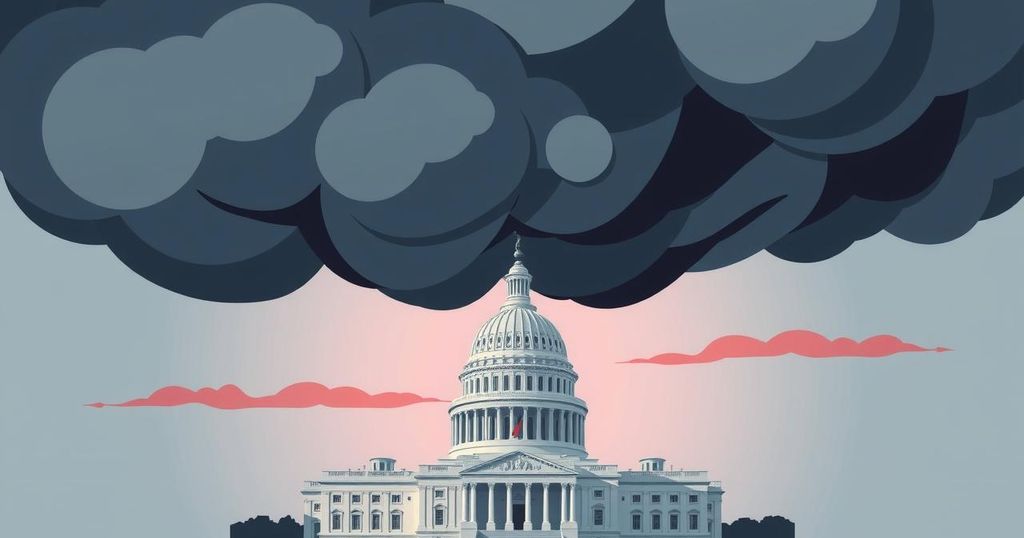Sudan’s Military Reclaims Authority Amidst Civil War and External Influences
Sudan’s military has regained control of the presidential palace, marking a significant shift in the civil war’s dynamics. The army’s resurgence is attributed to support from Russia, Iran, and successful militia recruitment. The ongoing conflict has resulted in severe humanitarian crises, with millions fleeing and extensive abuses reported. Meanwhile, regional powers are backing opposing sides, complicating both the military situation and civilian suffering.
Following nearly two years of intense conflict, Sudan’s military successfully regained control of the presidential palace in Khartoum, a critical stronghold of the opposing paramilitary forces. This significant achievement was marked by jubilant celebrations among the troops, despite the building’s devastation, illustrating a notable shift in momentum for the military following substantial territorial losses at the onset of the civil war.
The Sudanese army’s recent control of the palace is a pivotal moment in a prolonged civil war, rather than a definitive conclusion to hostilities. The army’s resurgence has been attributed to critical support from Russia, Iran, and other allies, coupled with the strategic recruitment of militia forces. The Rapid Support Forces (RSF) are facing substantial challenges, including managing territory and logistics.
The conflict erupted from an escalating rivalry between General Abdel Fattah al-Burhan, the de-facto president, and his deputy, General Mohamed Hamdan Dagalo (Hemedti). This clash has transformed much of Sudan into a battlefield, leading to a severe humanitarian crisis, with millions displaced and casualties reaching distressing estimates.
Global implications are evident, as regional powers like the United Arab Emirates have been implicated in backing the RSF. Conversely, the Sudanese army is forging deeper connections with allies such as Russia and Iran, urging a shift in their military capabilities. Former U.S. diplomat Alberto Fernandez emphasized that while Western powers oppose war, nations like Russia and Iran are actively supplying military resources.
Russia has long eyed establishing a naval base in Sudan, aligning its strategic interests with backing the army. With strengthened ties restored between Iran and Sudan, both nations are now believed to be supplying arms and advanced technology to the military forces involved. As military successes mount for the army in recent months, the implications of external support have become increasingly evident.
The complexity of military advancements includes the deployment of sophisticated technology, particularly drones, which have significantly altered the battlefield dynamics. Analysts contend that while drone warfare is influential, the ability to mobilize and recruit local militias is a more critical factor in reversing the army’s initial fortunes.
Amidst the turmoil, many Sudanese citizens feel caught in a relentless cycle of violence, seeing the military as a comparatively lesser threat. Reports of human rights abuses, including sexual violence against civilians, are rising, exacerbating an already dire living condition. Individuals like Issra Hassan articulate the fears and uncertainties prevailing in Khartoum, highlighting the unpredictable security situation and the distressing recruitment practices of armed forces.
The recent military success of Sudan’s army in retaking the presidential palace highlights a significant shift in the ongoing civil war, fueled by external support and strategic reorganization. The humanitarian crisis remains severe, with countless citizens caught in conflict. External alliances are reshaping the battle landscape, particularly with interventions from Russia and Iran, while the plight of civilians continues to be neglected amidst the power struggles of military factions. This complex situation underscores the need for international attention and action to address evolving security threats and humanitarian concerns in Sudan.
Original Source: www.telegraph.co.uk




Post Comment